Search Results
Showing results 121 to 140 of 191
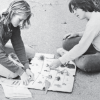
Plant Hunt
Source Institutions
In this outdoor activity and game, learners collect and sort leaf samples to determine how many types of plants grow in the activity site.
Pesticide Watch Card
Source Institutions
After learning that some of the chemicals we add to food crops may have harmful consequences on our health and the health of the environment, learners will create a pocket-sized card with their favori
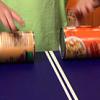
Soup Can Derby
Source Institutions
In this activity (on page 2 of PDF under GPS: Roller Coaster Design Activity), learners will use food cans of many different properties (sizes, shapes, and weights) and set two cans on their sides at
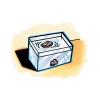
Defining Density
Source Institutions
In this introductory demonstration and activity, learners are introduced to the concept of density as they explore a rock and a wooden block in water.
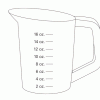
Using Food Labels
Source Institutions
In this nutrition activity, learners explore food labels and consider the nutritional value of foods. Learners also explore units of measurement commonly used on food labels.

A Recipe for Air
Learners use M&Ms® (or any other multi-color, equally-sized small candy or pieces) to create a pie graph that expresses the composition of air.
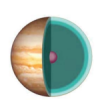
Jiggly Jupiter
Source Institutions
In this activity, learners build edible models of Jupiter and Earth to compare their sizes and illustrate the planets' internal layers.
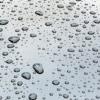
Atmospheric Collisions
Source Institutions
In this activity/demonstration, learners observe what happens when two ping pong balls are suspended in the air by a hair dryer. Use this activity to demonstrate how rain drops grow by coalescence.
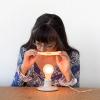
Pinhole Magnifier
Source Institutions
In this activity related to light and perception, learners use a pinhole in an index card as a magnifying glass to help their eye focus on a nearby object.

Rollin’ Rollin' Rollin'
Source Institutions
In this physics activity (page 12 of the PDF), learners explore potential and kinetic energy by rolling different sized marbles down an inclined plane.
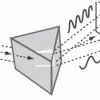
Rainbow in the Room
Source Institutions
This activity generates learner excitement about light through the creation of a room-sized rainbow.
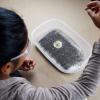
Exploring the Solar System: Craters
Source Institutions
"Exploring the Solar System: Craters" is an active, hands-on activity that demonstrates how craters form, and what they can teach us about the history and composition of planets and moons.
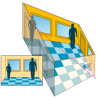
Special Effects: Titanic and Beyond
Source Institutions
In this activity, learners investigate how geometry plays a role in perspective.
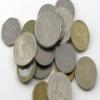
Sort It Out!
Source Institutions
In this activity, learners explore how engineers have developed sorting systems which integrate into manufacturing and packaging processes. Learners explore how coins are made.
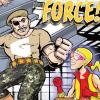
Doughy Physics
Source Institutions
Learners drop two different masses of play dough and observe how long it takes them to hit the ground.
Read the Label: Nutrition and Percentage
Source Institutions
This activity combines learning about nutrition, math of measurement and proportion, and healthy eating. Start by distributing food packages with Nutrition Facts labeled.
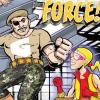
Watch It Fly
Source Institutions
Learners observe projectile motion by launching wooden balls off of a table top. They set up a rubber-band launcher so that each ball experiences a consistent amount of force.
Soaring Towers: Building with Recycled Materials
Source Institutions
In this activity, learners will build the highest tower they can out of recycled materials.
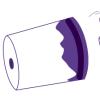
Air Cannon
Source Institutions
In this activity (page 1 of PDF under SciGirls Activity: Forecasting), learners will construct an air cannon by cutting a hole in the bottom of a bucket and stretching a garbage bag over the other end
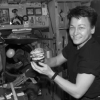
Servings and Choices
Source Institutions
In this nutrition activity (page 16 of PDF), learners document their individual eating habits and learn whether their eating patterns meet their needs.
